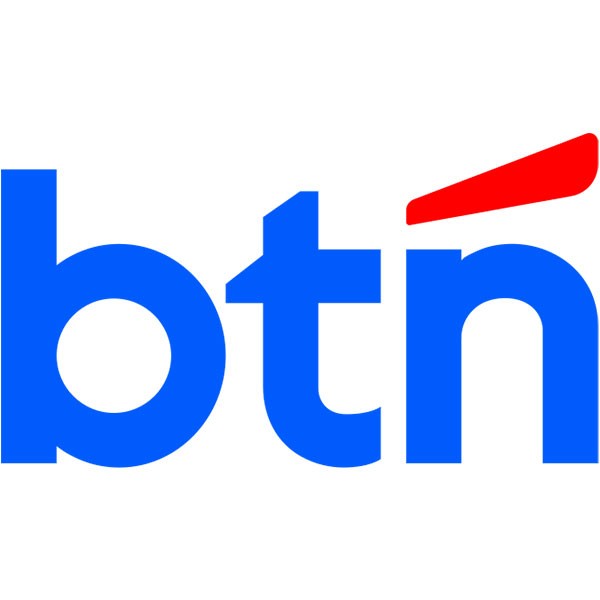basic bank information
Banco Central do Brasil, (abbreviated as BCB) is a central bank. It was established by the Brazilian government as a state-owned institution with the important responsibility of formulating and implementing the country's monetary policy, managing the financial system, and issuing the currency. As the central bank, the BCB is at the heart of the Brazilian economy, with the main objective of maintaining financial stability and supporting the country's economic development. Although part of the state system, the BCB maintains a certain degree of operational independence to ensure the professionalism of monetary policy and the absence of political interference.
name and background<
span style="font-family: sans-serif; color: black" Bank of > full name: Central Bank of Brazil (Banco Central do Brasil)
Founded: December 31, 1964
Headquarters location: Brasilia, the capital of Brazil
Shareholder Background: BCB is wholly owned by the Brazilian government and is a fully state-owned institution. It does not belong to a listed company and does not involve private capital. Its management is appointed by the State, a mechanism that guarantees its authority as the country's financial core. Due to its special nature as a central bank, BCB operates in a guided manner towards the country's economic goals, rather than pursuing market-based profit returns.
service scope
coverage: The Central Bank of Brazil mainly covers the whole of Brazil. As a central bank, it influences the economic operation of the entire country through monetary policy and financial regulation
services and products The central bank of Brazil mainly serves the government, financial institutions and the general public, but its service content is significantly different from that of commercial banks: > to the government: As the financial agent of the state, the BCB is responsible for managing the country's foreign exchange reserves, issuing currency, formulating and implementing monetary policy, and providing macroeconomic support to the government.
for financial institutions: BCB supervises banks and other financial institutions in Brazil to ensure the compliance and stability of the financial system, while providing the necessary liquidity support.
to the public: BCB indirectly serves the public by issuing money, maintaining financial stability, and promoting financial education. However, it does not offer financial products that are common to individual or corporate customers, such as savings accounts, loans, or investment wealth management services, which are usually the responsibility of commercial banks.
In general, BCB's services are mainly at the national level, focusing on macro-control rather than micro-financial services, and its core mission is to ensure the healthy operation of the entire financial system.
regulatory and compliance<
span style="font-family: sans-serif; color: black" > BCB is regulated by Brazilian national law, with policies and guidelines set by the Brazilian National Monetary Council (Conselho Monetário Nacional, CMN). As a central bank, it needs to operate in strict accordance with national financial laws and regulations to ensure the legitimacy and transparency of policy implementation.
customer service
> to the government: As the financial agent of the state, the BCB is responsible for managing the country's foreign exchange reserves, issuing currency, formulating and implementing monetary policy, and providing macroeconomic support to the government.
for financial institutions: BCB supervises banks and other financial institutions in Brazil to ensure the compliance and stability of the financial system, while providing the necessary liquidity support.
to the public: BCB indirectly serves the public by issuing money, maintaining financial stability, and promoting financial education. However, it does not offer financial products that are common to individual or corporate customers, such as savings accounts, loans, or investment wealth management services, which are usually the responsibility of commercial banks.
BCB offers a variety of customer service channels through its official website, including phone, email and live chat, where users can choose the most suitable means for support and consultation. As a central bank, its customer service is primarily for financial institutions, government departments and other related entities, rather than for individual customers. These services are designed to answer policy advice, provide technical support or assist in the day-to-day functioning of the financial system, ensuring a smooth and efficient flow of information.
security measures
the Central Bank of Brazil has implemented a number of security measures to protect the country's financial system and the safety of customer funds. These measures include:
Multi-factor authentication: Increase the security of accounts and transactions and reduce the risk of unauthorized access.
Real-time risk monitoring: Identify and respond to potential financial risks in a timely manner through technical means to ensure the stability of the system.
> data encryption technology: to ensure the security of information transmission and storage, and to prevent data leakage.
Although the technical details are not disclosed, as a central bank, BCB's security measures need to comply with international standards to maintain the stability of the country's financial system and public trust. These measures are not only a technical guarantee, but also an important basis for the BCB to carry out its duties.
featured services and differentiation<
span style="font-family: sans-serif; color: black" > the Central Bank of Brazil is characterized by its unique position and responsibilities as a central bank. Unlike commercial banks, BCBs do not aim to make a profit and do not directly provide financial products to individuals or businesses, but serve the state through the following core functions:
Regulation of the financial system: to ensure the stable operation of banks and other financial institutions and to prevent systemic risks.
currency issuance: responsible for the design, printing and circulation of the Brazilian real, ensuring the stability and security of the money supply.
Foreign exchange reserve management: Maintain the country's foreign exchange balance, respond to international market fluctuations, and ensure economic stability.
> Monetary policy formulation and implementation: Regulate the economy by adjusting interest rates, managing money supply, etc., and balance inflation and economic growth.
these responsibilities have placed BCB at the heart of Brazil's financial system, with policies and decisions that have a profound impact on the country's economy. Compared with other banks, BCB's differentiation is reflected in its macro-control capabilities rather than micro-financial services. For example, its "Pix" payment system not only improves payment efficiency, but also promotes financial inclusion, which has become an important highlight of BCB in the digital era.
summary
Banco Central do Brasil (BCB) is a central bank wholly owned by the Brazilian government, founded on December 31, 1964 and headquartered in Brasilia. Its services cover the entire country of Brazil and its main responsibilities include the formulation of monetary policy, the regulation of the financial system, the issuance of currency and the management of foreign exchange reserves. BCB provides basic digital services and a variety of customer service channels, and ensures financial security through data encryption, multi-factor authentication and other measures. As a central bank, BCB does not directly serve individual or corporate clients, but plays an irreplaceable role in the Brazilian financial system by supporting the country's economic operations through its unique functions. Its policy influence, ability to regulate the economy, and efforts to promote financial innovation make it a key pillar of Brazil's economic stability.










